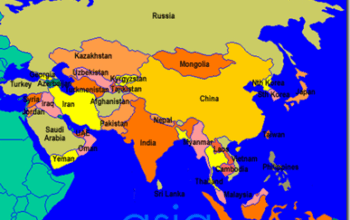In the vast theatrical expanse of space, an irrevocable drama unfolds. This cosmic stage transcends mere geopolitics, presenting a narrative steeped in technological innovation, economic prowess, and the enigmatic pursuit of knowledge. As nations engage in a metaphorical race towards the astral frontier, an unsettling inquiry emerges: Is Europe losing its footing in the arena of space exploration? A mélange of recent developments hints at a pivotal moment, rekindling echoes of the epochal space race of the 20th century.
To comprehend the complexities of Europe’s position, one must first traverse the historical context of its ambitions in space. During the latter half of the 20th century, Europe embarked on a collaborative journey accentuated by the formation of the European Space Agency (ESA) in 1975. This consortium represented a synthesis of fragmented national efforts, propelling Europe into an era of unparalleled achievements—from the launch of Ariane rockets to the deployment of the Galileo satellite navigation system. These milestones were not merely technological triumphs; they were emblematic of Europe’s aspirations to establish a commanding presence among superpowers like the United States and the now-defunct Soviet Union.
Yet, fast forward to the present, and an alarming narrative emerges. The last decade has been marred by a glaring disparity between Europe and its rivals, notably the United States and China. With the advent of commercial space enterprises, the battlefield has expanded beyond state-centric endeavors. Companies such as SpaceX and Blue Origin have not only redefined the parameters of space travel but have also catalyzed a paradigm shift in public and private investment dynamics. The overwhelming success of these enterprises draws into sharp relief the stagnation of European initiatives. While US private ventures have made monumental strides, Europe’s reliance on traditional government-led projects has fostered an environment of lethargy.
Moreover, the competition from China adds a profound layer of complexity to this narrative. China’s rapid ascension in space capabilities serves as a counterpoint to the European narrative, showcasing starkly ambitious milestones such as the lunar landing and the development of a modular space station. The juxtaposition of these contrasting trajectories prompts an introspective examination of Europe’s own capabilities and aspirations. As China positions itself as a formidable player in the cosmic discourse, Europe risks relegation to a secondary status—merely a spectator amidst the choreography of the new space race.
But what underlies this perceived decline? A multitude of factors converges to paint a disheartening picture. Bureaucratic entanglements and delayed decision-making processes bedevil the European space sector, impairing its responsiveness to dynamic global conditions. In stark contrast, the United States enjoys an agile ecosystem characterized by swift approvals and innovative risk-taking, enabling it to lead the charge in cutting-edge technologies, such as reusable launch systems and interplanetary missions. Furthermore, the fragmentation of national agendas complicates collaborative efforts within Europe, undermining the coherence necessary to tackle monumental challenges on a unified front.
Additionally, funding discrepancies present a formidable obstacle. In an era where private investors are increasingly drawn to the lucidity of return on investment in space, European entities may find themselves competing against a wall of resource scarcity. The disparity in financial backing between American and European initiatives raises pertinent questions about the sustainability of European ambitions. In an epoch that demands rapid adaptation, the tepid pace of financial commitment could spell disaster for future projects.
The specter of diminished European influence manifests not only in technological stagnation but also in the diplomatic domain. The realm of space exploration has evolved into a theater for international collaboration, where the ability to navigate complex geopolitical landscapes adds a layer of sophistication to traditional mathematical and engineering competencies. The unity displayed by space-faring nations in collaborative missions, such as the Artemis Accords, starkly contrasts with Europe’s increasingly insular political dynamics. With emerging powers shaping new alliances, the prospect of Europe remaining a relevant actor diminishes.
However, amidst these disheartening reflections resides a glimmer of hope. The European space community is not devoid of innovation or ambition. Initiatives like the European Union’s Space Programme and the Horizon Europe scheme serve as powerful testaments to the continent’s resolve to reclaim its command within the cosmos. Through a renewed focus on funding, coupled with an integrated strategy that aligns public and private sectors, Europe could cultivate a legacy that transcends its current challenges.
Moreover, fostering public interest through educational outreach can ignite the embers of inspiration in younger generations, potentially rekindling a fervent desire to push the boundaries of exploration. In a realm often eclipsed by paternalistic narratives of superpowers, the underdog story of European ingenuity might serve as a beacon of resilience, advocating for collaboration over competition and nurturing a diverse ecosystem of innovators.
As humanity stands on the precipice of a new era in space exploration, Europe finds itself at a critical juncture. The celestial race extends beyond mere technological prowess; it encompasses national pride, collective aspiration, and the insatiable human curiosity that propels us beyond our terrestrial confines. While the warning signals from orbit may echo ominously, the opportunities for renewal underpin the narrative. Whether Europe emerges as a transformative leader or succumbs to the gravitational pull of complacency rests on its ability to navigate the complexities of collaboration, innovation, and investment. The cosmos awaits, perpetually unyielding and relentlessly inviting.












